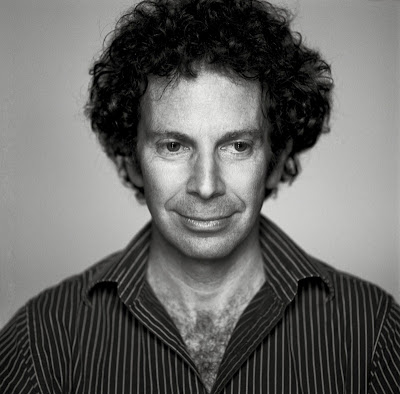Genre: Comedy/Drama/Musical/Satire/Crazy
Premise: A bitter and frustrated movie blogger becomes obsessed with an award-winning director who he believes stands for everything that is wrong with the industry.
About: This is Charlie Kaufman’s next directing project. It will star Kevin Klein, Steve Carrell, Jack Black and Nicholas cage.
Writer: Charlie Kaufman
Details: 151 pages – May 17, 2010 draft (This is an early draft of the script. The situations, characters, and plot may change significantly by the time the film is released. This is not a definitive statement about the project, but rather an analysis of this unique draft as it pertains to the craft of screenwriting).
If yesterday’s script was the meat lovers pizza of wacky screenplays, today’s script adds stuffed crust, double toppings, a gigantic side order of cheese sticks, and instructions on how to bake yourself into your next pizza. Charlie Kaufman is a great big weirdo. But he’s a weirdo with a voice unlike any other screenwriter in the world. We saw that in Eternal Sunshine. We got sucked up in it with Adaptation. And I don’t think anybody has written a screenplay as strange as Being John Malkovich. That is, until today. Charlie Kaufman has outdone himself. He has created one of the most bizarre pieces of screenplay real estate in the history of the United Screenplays of America.
This is life imitating art imitating life imitating art imitating life. I’m 30% sure that Kaufman planned for this script to be reviewed on Scriptshadow. And I’m 16% sure that this review is somehow a part of the movie. I’m also convinced that I’m supposed to record this review in song and sing it to you guys. What am I talking about? I don’t know. I don’t know anything anymore. God help all of us for the next 5 minutes. Because there’s a good chance you won’t know who you are after this review is over.
Kaufman has opted to tackle one of the most difficult subject matters in screenwriting – the Hollywood satire. Anybody remember “Burn Hollywood Burn?” I do. It was awful. As is pretty much every satire about Hollywood. How do you satirize something that’s already ridiculous in itself? The same thing happened when Paul Weitz tried to satirize American Idol. Why make fun of something that already knows how cheesy it is? In short, you don’t want to satirize Hollywood. Which is exactly why Kaufman decided to do it.
Frank or Francis covers a lot of territory and a lot of characters. There is a disabled 60-year-old film loving woman in a wheelchair. There’s an actor known for his funny fat rolls who is now skinny so nobody cares about him anymore. There’s a director who’s constantly attacked for making lightweight movies (ahem – Michael Bay) who’s decided to write an equation for an Oscar winning screenplay. And of course, there’s a disembodied head. Yes, you heard that correctly. One of the characters is a disembodied head.
But the main storyline centers around Frank, a director who makes serious films that are always up for Oscar contention. When he wins for his latest film, Hapax Legomenon, there’s one person who refuses to accept it. That would be Francis. Francis is a twenty-something blogger (or possibly just a frequent commenter on a blog) who has seen every single movie ever and is furious about the state of film – particularly that hacks like Frank are seen as “auteurs.” As everyone knows, at least according to Francis, there hasn’t been a true auteur since the 1970s.
Francis doesn’t really do anything with his life other than scour the Internet for discussions about film and write out passionate angry discourses about how bad said films are. Even though this character is exaggerated for effect, it’s scary how familiar he is. In fact, I think we’ve seen versions of Francis right here on Scriptshadow.
Anyway, Francis is in love with another blogger named Mimi, who he somehow persuades to come out with him to Frank’s newest film, “You,” for which he’ll be doing a question and answer session afterwards. As the credits roll, Mimi is blown away by the film and believes Frank is the best director in the world. Francis is furious with her and proceeds to ask a long angry question about the half a dozen films Frank ripped off to make “You.” Everybody’s weirded out by Frank’s anger but he seems to think this is normal. Naturally, the question ensures there will be no second date with Mimi.
And then comes the singing. Yes, there’s a whole lot of singing in Frank or Francis. In fact, we get the first musical number in history with two blog commenters trading barbs via song. Trying to imagine a musical number with two people sitting in front of a computer is baffling enough. But to base it around film criticism is hilarious indeed.
Eventually – and I use that term liberally – a kind of story emerges centering around the upcoming Oscars. Frank is hoping to win another Oscar for his film, “You.” And Francis is doing everything in his power to alert the Internet how terrible “You” is. We’re also following 8 to 10 other characters, such as the disembodied head and the fat actor, as they too are gearing towards making an impression at the Oscars.
Let me start by saying, Charlie Kaufman is one of the few writers I don’t feel qualified to critique. Even if I don’t agree with or understand what he’s doing, I know that he’s in a screenwriting universe so far advanced from my own, that it’s probably my fault for not understanding it. That being said, I think Kaufman got a little too nuts here. There’s a moment in the script where, I believe, Francis accuses Frank of just “throwing a bunch of weird shit up on screen” and calling it “deep.” I’m not sure if this script is supposed to be taken seriously, or is one big inside joke where Kaufman decided to do just that — throw a bunch of weird shit up on screen and laugh as everyone around him called it genius.
The other day we were blasting amateur entry Manchester Black for having too many characters. In the spirit of consistency, I would have to lodge the same complaint against Frank or Francis. There are just too many people here and it’s not always clear what they have to do with the story. I’m still trying to figure out what the hell the disembodied head was doing in the script. Was that part of the movie within a movie? Was there a movie within a movie? I’m still not sure.
Nor did I think Jonathan, the Michael Bay-like director who’s trying to be taken seriously, was important enough to garner so much screen time. If a script is 150 pages long, I don’t care what your writing pedigree is, chances are you need to cut some stuff down and cut some people out. There’s no question that some of these characters could’ve been cut out and the story wouldn’t have suffered at all.
Actually, if this would’ve been slimmed down to focus mainly on Frank and Francis, I think it would have been great. There’s something eerily familiar about Francis that anybody who loves film can relate to. The angry anonymity internet commenting card has been done before, but Kaufman takes it to a whole new level, making Francis this obsessive freak who can’t survive unless he’s tearing somebody else down. Again, hearing him say things like he’d easily be able to create a masterpiece if he just had the resources that somebody like Frank had, is about as familiar a real-life claim as they come.
I actually thought Kaufman should’ve spent a lot more time on both characters’ love stories as well (instead of all these random people). The way Francis was so unaware of how his anger turned off Mimi made for an interesting dynamic. Yet they really only had one scene together. Then Frank has this interesting online relationship where he falls for one of his fans pretending to be somebody else. The problem is, it comes into the story so late that it never has time to grow.
So where does that leave us? I’m not sure. It does sort of come together in the end in a wild and unexpected Oscar finale. But as I look back on the script, I felt like I had to work too hard to get there. I had to push through too many characters and subplots that weren’t necessary to experience the good stuff. Kaufman may be a great writer, but it wouldn’t hurt to go back to the basics. Streamline your story. Only tell the parts that need to be told. Don’t fall in love with stuff that doesn’t really matter, because it’s just going to get in the way of telling your story. Frank or Francis is a mess. But at least it’s an ambitious mess. It’ll be interesting to see how it all plays out on the big screen.
[ ] What the hell did I just read?
[x] wasn’t for me
[ ] worth the read
[ ] impressive
[ ] genius
What I learned: How do you know when you’ve gone too far? When you’ve exited the reservation? You don’t. You can’t know. You’re too close to the material. You need outside eyes to tell you that stuff. Kaufman has stated he doesn’t give his screenplays to anybody before he sends them off to his agent. That’s probably why we have a disembodied head, a few too many unneeded subplots, and a 151 page running time. You need 2-3 people you trust to tell you when you’ve gone too far, ESPECIALLY when you’re writing a comedy or trying something different. Otherwise all that genius of yours is going to be buried underneath a confusing semi-interesting movie.





